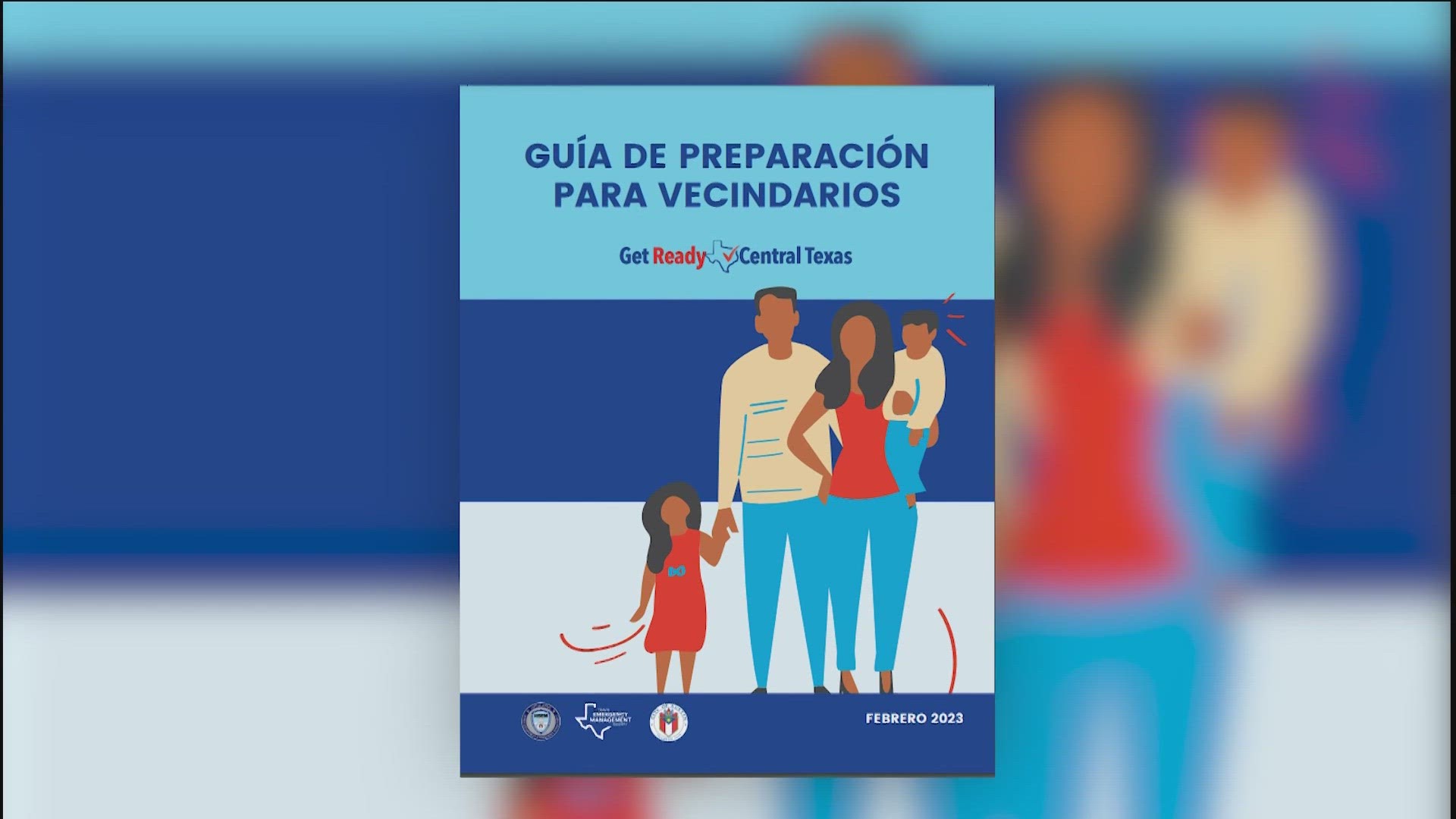AUSTIN, Texas — In an emergency situation such as a natural disaster, being prepared and getting information is vital – especially in a language a person can understand.
In an effort to give non-English speakers more accessibility to resources, Austin's Office of Homeland Security and Emergency Management (HSEM) recently released a Spanish version of the city's National Preparedness Guide.
"We look at census data and data from Austin Police Department and other partner resources, and we prioritize the type of languages that are spoken in the city based on population," said Sara Henry, the HSEM's public information and marketing program manager.
The Latino community in Austin makes up about 33% of the population, according to the U.S. Census Bureau. HSEM teamed up with several departments, including the coalition Go! Austin/Vamos! Austin (GAVA).
GAVA spearheaded the Dove Springs Neighborhood Preparedness Guide, which is a pilot project that mirrors the City's newly released guide.
GAVA Climate Resilience Lead Organizer Frances Acuña explained the goal was to make sure not just the translation was correct, but that it was simplified in a way that takes out jargon used by City officials.
"It's just making sure that we speak to the residents in a way that they understand," Acuña said. "I just want [the city] to .... not to let language be the barrier of being ready."
It's an effort that should have happened a long time ago, according to Paul Saldaña, the co-founder of Hispanic Advocates Business Leaders of Austin (HABLA). He has advocated for more multilingual resources from the City.
"Here we are, 2023, and we're just now starting to come out with guides in Spanish," Saldaña said. "So we're a little bit behind the curve. It's taken a little while, but, you know, obviously, we're continuing to build upon the progress that the City has made."
In May 2023, City auditors released a follow-up to a 2016 report on Austin's language access. It said the City still needed to work on better communication in emergency situations with people who don't speak English very well.
Henry said the goal is for Austin to continue improving in areas where it's needed, and that the next step for the City is to evaluate the population and see which languages need to be prioritized, to translate for that community.
"It's important for us as the city to make sure that we can reach everyone in our community, whatever your skill set, whatever your ability, whatever language you speak," Henry said.

